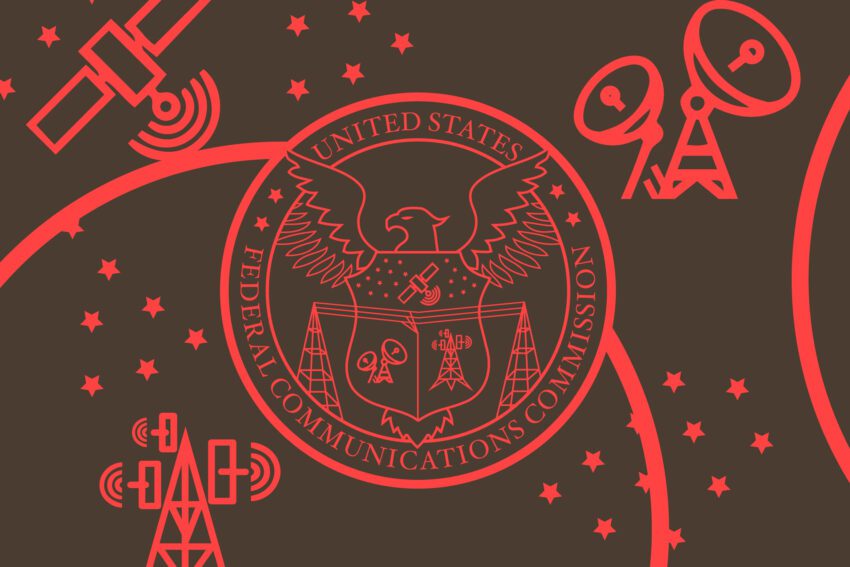
the fcc is letting isps hide fees The Federal Communications Commission (FCC) is taking steps to eliminate a rule that mandates internet service providers (ISPs) to disclose detailed information about their service plans, a move that could obscure the true costs of broadband for consumers.
the fcc is letting isps hide fees
Background on the Broadband Facts Label
In April 2022, the FCC implemented a requirement for ISPs to provide a “Broadband Facts” label, akin to nutritional labels on food products. This initiative aimed to enhance transparency in the broadband market, allowing consumers to make informed decisions based on clear and concise information about pricing, speeds, data caps, and other essential service features. The rule was designed to address long-standing consumer frustrations regarding hidden fees and unclear service agreements.
The Broadband Facts label was the result of years of advocacy from consumer rights groups and was seen as a significant step toward improving market transparency. By requiring ISPs to present this information in a standardized format, the FCC hoped to empower consumers to compare different service offerings more easily, ultimately fostering competition and driving down prices.
The FCC’s Recent Proposal
On October 28, 2023, the FCC voted 2-1 in favor of a notice of proposed rulemaking (NPRM) that seeks to roll back the requirements for the Broadband Facts label. This proposal comes just over a year after the label’s implementation, raising concerns about the FCC’s commitment to consumer protection and market transparency.
According to the FCC, the proposed changes are intended to reduce regulatory burdens on ISPs. However, critics argue that this move could significantly undermine the transparency that the Broadband Facts label was designed to provide. The NPRM suggests that ISPs may no longer be required to disclose certain fees and charges upfront, which could lead to a situation where consumers are unaware of the total costs associated with their broadband service until after they have signed a contract.
Implications for Consumers
The potential rollback of the Broadband Facts label raises several important implications for consumers. Firstly, without clear and standardized information about pricing and service features, consumers may find it more challenging to compare different ISPs and their offerings. This lack of transparency could lead to consumers inadvertently selecting services that do not meet their needs or that come with unexpected costs.
Moreover, hidden fees have long been a contentious issue in the broadband market. Many consumers have reported being surprised by additional charges on their bills, which can significantly increase the overall cost of service. The proposed changes could exacerbate this problem, making it easier for ISPs to include undisclosed fees in their pricing structures.
Consumer Advocacy Groups Respond
Consumer advocacy groups have expressed strong opposition to the FCC’s proposed changes. Organizations such as the Electronic Frontier Foundation (EFF) and Public Knowledge have criticized the move as a step backward for consumer rights. They argue that the Broadband Facts label was a crucial tool for ensuring that consumers had access to the information they needed to make informed choices.
In a statement, EFF policy analyst Ernesto Falcon remarked, “The FCC’s decision to dismantle the Broadband Facts label is a disservice to consumers who deserve transparency in their internet service. This rollback could lead to a resurgence of hidden fees and deceptive practices that the label was designed to combat.”
Industry Perspectives
On the other hand, some industry representatives argue that the regulatory burden imposed by the Broadband Facts label is unnecessary and costly. They contend that the existing market dynamics already encourage transparency, as consumers can easily switch providers if they are dissatisfied with their service or pricing.
ISPs have long maintained that they are committed to providing clear information to their customers. However, critics point out that the industry’s track record on transparency has been inconsistent, with many consumers reporting confusion over pricing structures and service terms.
The Role of the FCC
The FCC has historically played a crucial role in regulating the telecommunications industry and ensuring that consumers are protected from unfair practices. However, the agency’s recent actions have raised questions about its commitment to these principles. The proposed rollback of the Broadband Facts label is part of a broader trend of deregulation that has characterized the FCC under the leadership of Chairman Ajit Pai and his successors.
Critics argue that this shift away from consumer protection is concerning, especially given the increasing importance of broadband access in today’s digital economy. As more aspects of daily life move online, from education to healthcare, the need for transparent and affordable internet service becomes even more critical.
Potential Outcomes and Next Steps
The FCC’s NPRM is currently open for public comment, allowing stakeholders, including consumers, advocacy groups, and industry representatives, to voice their opinions on the proposed changes. The commission will review the feedback before making a final decision on whether to proceed with the rollback of the Broadband Facts label.
Consumer advocates are urging the public to participate in the comment period, emphasizing the importance of maintaining transparency in the broadband market. They argue that the feedback received during this time could significantly influence the FCC’s decision-making process and help protect consumers from potential pitfalls associated with hidden fees and unclear pricing.
Looking Ahead
As the FCC moves forward with its proposed changes, the implications for consumers and the broadband market as a whole remain uncertain. If the rollback is implemented, it could lead to a less transparent environment where consumers are left in the dark about the true costs of their internet service.
On the other hand, if consumer advocacy efforts succeed in pushing back against the proposed changes, it could reinforce the importance of transparency in the broadband market and ensure that consumers have access to the information they need to make informed choices.
Conclusion
The FCC’s decision to propose changes to the Broadband Facts label represents a significant shift in the regulatory landscape for internet service providers. While the agency argues that the changes are intended to reduce regulatory burdens, critics warn that they could lead to increased confusion and hidden costs for consumers. As the public comment period unfolds, the outcome of this proposal will be closely watched by stakeholders across the industry, with potential implications for the future of broadband transparency and consumer protection.
Source: Original report
Was this helpful?
Last Modified: October 31, 2025 at 6:37 pm
7 views















